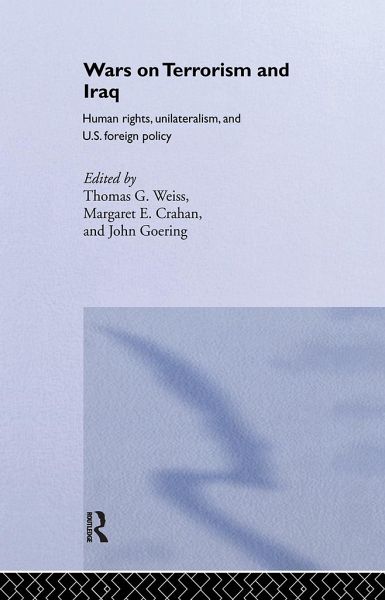
The Wars on Terrorism and Iraq
Human Rights, Unilateralism and US Foreign Policy
Herausgeber: Crahan, Margaret; Weiss, Thomas G.; Goering, John
Versandkostenfrei!
Versandfertig in 1-2 Wochen
223,99 €
inkl. MwSt.
Weitere Ausgaben:

PAYBACK Punkte
112 °P sammeln!
'If I had the power to do so, I would make this book compulsory reading for all who exercise political power in our world today! Instead, I will keep my fingers crossed that it will be read by as many members of Congress and of the current US administration as possible, and by a wide cross-section of policy analysts, diplomats, academics and human rights defenders.' - Mary Robinson, Former UN High Commissioner for Human Rights Wars on Terrorism and Iraq provides a timely and critical analysis of the impact of the wars on terrorism and Iraq on human rights particularly internationally, as well ...
'If I had the power to do so, I would make this book compulsory reading for all who exercise political power in our world today! Instead, I will keep my fingers crossed that it will be read by as many members of Congress and of the current US administration as possible, and by a wide cross-section of policy analysts, diplomats, academics and human rights defenders.' - Mary Robinson, Former UN High Commissioner for Human Rights Wars on Terrorism and Iraq provides a timely and critical analysis of the impact of the wars on terrorism and Iraq on human rights particularly internationally, as well as related tensions between unilateralism and multilateralism in US foreign policy. The distinguished contributors examine the consequences for international relations and world order of the traditional standard bearer for human rights and democracy (the United States) appearing not to be championing the rule of law and negotiated conflict resolution. The authors also suggest effective policies to promote greater fulfilment of human rights in order to achieve peaceful accord within nations, and stability internationally.














